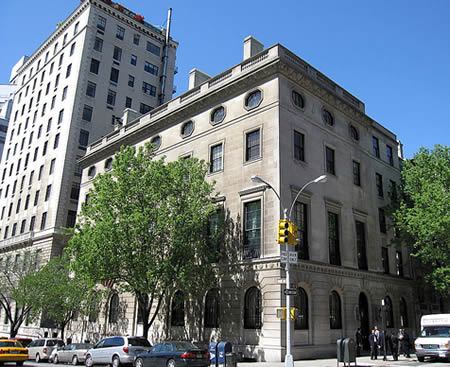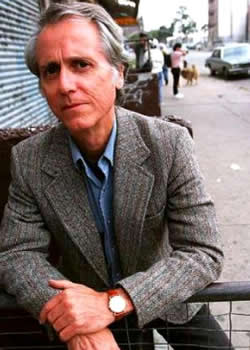 |
| Council on Foreign Relations |
Founded at the close of World War I, the Council on Foreign Relations (CFR) is an influential organization devoted to the study of foreign policy. Ever since 1952, when Emmanuel Josephson’s Rockefeller Internationalist: The Man Who Misrules the World
Although the fall of the Iron Curtain
CFR members are well positioned for this coup, as they can be found in the highest positions of the government (Henry Kissinger, George Bush, and Bill Clinton); finance (the Rockefellers and innumerable New York bankers); the legal world (Supreme Court Justices O’Connor, Ginsburg, and Breyer); and the media (editors of the New York Times and network news anchors); not to mention in other secret cabals such as the Trilateral Commission and the Bohemian Grove group
  |
According to the conspiracy theorists, contemporary political developments such as the liberalization of global trade (e.g., NAFTA, GATT) and the rise of the United Nations are the first steps toward the CFR’s ultimate goals: the end of national sovereignty and the enslavement of the entire world under the banner of their centralized, all-powerful “world government.” In this “New World Order,” U.S. military forces will be employed as oppressive agents of the global supergovernment—UN “peace-keeping” missions are merely the tip of this iceberg.
To be fair, there are a great many “charges” that members of the CFR would not care to dispute, but the Council’s outlook on the New World Order is radically different from that of the JBS because of the historical context out of which the whole idea developed.
When the CFR was founded in 1919, Woodrow Wilson’s quest for a utopian international community constituted the starting point for many CFR members’ views on U.S. foreign policy. If World War I was to be the “war to end all wars,” it was essential to produce a new international community that could ease the tensions between nationstates before serious conflicts erupted.
What was needed, argued the Wilsonians, was less jingoistic nationalism and more international cooperation; a movement toward creating “One World” from the divided, fractured world of 1919 (and, indeed, since this was prior to the rabid anticommunism of the cold war, some members thought in terms of a “socialist” world order, which was to become immensely unpopular three decades on).
Of course, for a variety of reasons, lack of full U.S. participation being one, the League of Nations never fulfilled this role, and within a decade Europe was quickly descending into another era of bloodshed. The Council’s investigations into the causes of World War II only reinforced the Wilsonian ideals of many members. The division of the world’s great powers combined with rampant nationalism had produced the preconditions for fascism, genocide, and the near total destruction of Europe.
 |
| Council on Foreign Relations |
Supporters of the CFR today would argue that the Council’s advocacy for a New World Order must be understood in this context, and that the movement toward international cooperation under the aegis of the United Nations heralds an era of increasing peace and prosperity rather than an Orwellian nightmare.
“Mainstream” critics and historians of the CFR like Robert Schulzinger (who actually suggests that much of the Council’s work is cliché-ridden and ineffectual) argue that the Council’s ideas merely mirror the transformations brought on by globalization, and that to read the similarity between the CFR’s ideas and global developments as involving a causal link is simply a mistake.
Thus, as far as the New World Order goes, it seems as though one man’s secular utopia is another man’s apocalypse; the division between the two perspectives is completely unbridgeable, and the apocalyptic side of the divide is inevitably dismissed by mainstream culture as “extreme.”
The charge of elitism, however—the claim that the CFR is a network of “insiders” that form an allpowerful East Coast “establishment”—is less easily dispelled, since the CFR is quite self-consciously elitist. The CFR argues that international relations should be studied by serious, dispassionate minds free from the taint of impurities such as nationalism.
At the outset of the cold war, for instance, George Kennan published his now infamous “X” article in the CFR’s journal, Foreign Affairs, and raised so much public hysteria surrounding the Soviet menace that the Council began to fear that the issue of U.S-Soviet relations would be hijacked by demagogues (and, in view of what loomed on the horizon in McCarthyism, perhaps this fear was not misplaced). If the CFR is “secretive,” argue its proponents, it is because sometimes heightened public consciousness actually works against the proper ends of international politics.
Even mainstream academics, however—people who would themselves no doubt be designated “insiders” by the JBS—might well argue that while the CFR’s cultivation of its status as an elite organization may not accurately be termed conspiratorial, it is not at all clear that it represents a positive development in U.S. political culture.


























